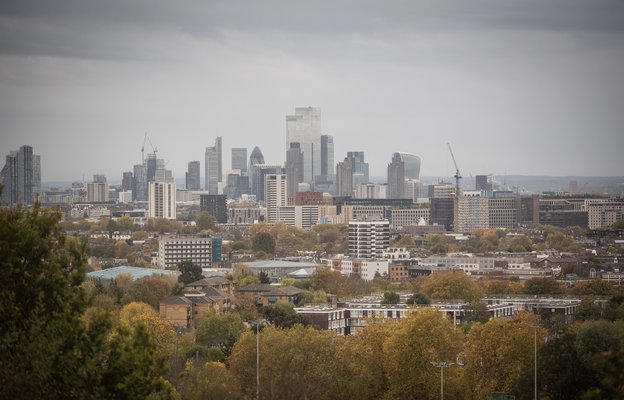
At a glance
- £39bn investment in social and affordable housing is welcome — but not enough to fix London’s housing crisis.
- No short-term relief: homelessness is rising, and housing remains unaffordable for many.
- Positive steps include expanded free school meals and a new crisis support fund.
- But no action on the two-child limit or housing benefit rates — both key to tackling poverty.
- Long-term plans must be matched with urgent action to support struggling Londoners now.
On 11 June 2025, the UK government unveiled its multi-year Spending Review. The chancellor set out budgets for government departments indicating a direction of travel for the rest of this parliament.
While national headlines focus on big-ticket items like infrastructure and defence, the real test of this review is how it delivers for people’s day to day lives. We’ll be looking at the spending review with a London lens – a city that is home to great wealth, but where more than two million people (including a third of children) live in poverty, and where a deep housing crisis is pushing the city to a tipping point.
Housing: ambitious investment but will it ease London’s deep-rooted crisis?
Housing is the biggest issue facing London. Over 300,000 households are on a social housing waiting list, pushing many into the expensive private rental market. Rough sleeping has tripled in the last three years, and an estimated one in 50 Londoners are homeless and in temporary accommodation.
What did the Spending Review announce, and what does this mean?
The Chancellor confirmed a £39 billion investment over ten years in affordable and social housing — hailed as the biggest such investment in a generation. This is welcome news.
But is it enough? And will it make a difference? The short answer: no to the first, and yes—but it remains to be seen how much — to the second.
New Economics Foundation Economist Emmet Kiberd
Shelter estimates we need 90,000 extra social homes a year, many in London. Even if all £39bn went to social housing, it wouldn’t reach this target. Spread over a decade, it’s £3.9bn a year, an increase from £2.3bn. Analysis from Peter Appsshows that far from being the biggest investment in 50 years, this returns us to pre-austerity levels.
How the money is used matters. As the heart of the housing crisis, London must get enough funding to build vastly more social homes — not just ‘affordable’ homes.
Nothing to provide relief in the short term
The biggest action needed is vastly more social homes — but this takes years. The review offered little to tackle the housing crisis in the meantime.
We need bold action now, such as permanently linking LHA rates to inflation. Our latest research found just 5% of rental homes are affordable to those on housing benefits — far below the 30% the policy intends to cover.
Some green shoots on poverty – but a missed opportunity
London is one of the world’s wealthiest cities — but now has the UK’s highest poverty rate at 26%. That’s over two million people, including 700,000 children.
One bright spot is the expansion of free school meals to all children in households on Universal Credit. This means tens of thousands more London pupils get a free, nutritious meal daily - easing pressure on family budgets and supporting health and learning.
New crisis support fund
The chancellor announced a multi-year crisis support fund to replace the household support fund. This helps local councils offer emergency support with essentials. Trussell Trust break down this new fund here.
But still no action on the two-child limit
The key question remains: has the two-child limit been removed?
It hasn’t — and that’s a massive missed opportunity. The policy is a major driver of child poverty. Scrapping it could lift 300,000 children out of poverty.
No other policy would lift as many children out of poverty — or do so as cost-effectively.
And the wider climate remains difficult
The social security system is already failing to meet basic needs. Meanwhile, planned disability benefit cuts risk pushing more Disabled families into poverty.
In conclusion: A step forward, but too little ambition
This Spending Review brings both hope and frustration. It marks a shift away from austerity with new investment in housing and support like free school meals.
But it doesn’t go far enough. Tackling poverty means matching housing investment with urgent measures — especially scrapping the two-child limit.
The Spending Review missed the chance to take steps that would immediately ease hardship. Without urgent action on in-work poverty and basic support, too many Londoners will continue to fall through the cracks.
Sign up to London's Poverty Profile - monthly briefing to stay up to date.


